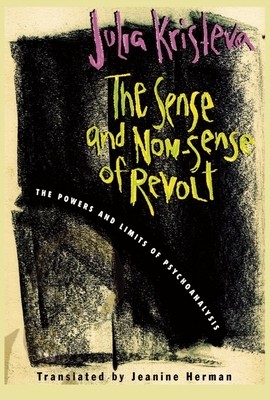
- We will send in 10–14 business days.
- Author: Julia Kristeva
- Publisher: Columbia University Press
- ISBN-10: 0231109970
- ISBN-13: 9780231109970
- Format: 14.7 x 22.3 x 1.4 cm, minkšti viršeliai
- Language: English
- SAVE -10% with code: EXTRA
Reviews
Description
Kristeva focuses on an intriguing new dilemma. Freud and psychoanalysis taught us that rebellion is what guarantees our independence and our creative abilities. But in our contemporary "entertainment" culture, is rebellion still a viable option? Is it still possible to build and embrace a counterculture? For whom -- and against what -- and under what forms?
Kristeva illustrates the advances and impasses of rebel culture through the experiences of three twentieth-century writers: the existentialist John Paul Sartre, the surrealist Louis Aragon, and the theorist Roland Barthes. The book also offers an illuminating discussion of Freud's groundbreaking work on rebellion, focusing on the symbolic function of patricide in his Totem and Taboo and discussing his often neglected vision of language.
EXTRA 10 % discount with code: EXTRA
The promotion ends in 23d.18:58:58
The discount code is valid when purchasing from 10 €. Discounts do not stack.
- Author: Julia Kristeva
- Publisher: Columbia University Press
- ISBN-10: 0231109970
- ISBN-13: 9780231109970
- Format: 14.7 x 22.3 x 1.4 cm, minkšti viršeliai
- Language: English English
Kristeva focuses on an intriguing new dilemma. Freud and psychoanalysis taught us that rebellion is what guarantees our independence and our creative abilities. But in our contemporary "entertainment" culture, is rebellion still a viable option? Is it still possible to build and embrace a counterculture? For whom -- and against what -- and under what forms?
Kristeva illustrates the advances and impasses of rebel culture through the experiences of three twentieth-century writers: the existentialist John Paul Sartre, the surrealist Louis Aragon, and the theorist Roland Barthes. The book also offers an illuminating discussion of Freud's groundbreaking work on rebellion, focusing on the symbolic function of patricide in his Totem and Taboo and discussing his often neglected vision of language.


Reviews